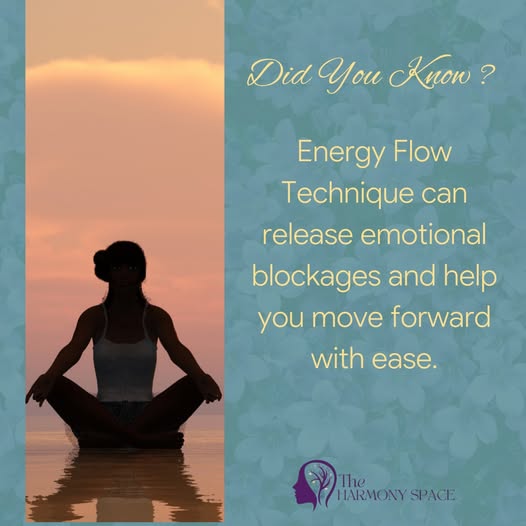Emotional blockage refers to a state where an individual experiences difficulty in expressing, processing, or understanding their emotions. This blockage can manifest as feelings of stagnation, frustration, or even physical discomfort. It can affect various aspects of life, including relationships, work performance, and overall well-being. In this comprehensive article, we will delve into the causes of emotional blockage, its signs and symptoms, effective strategies for overcoming it, and the benefits of emotional healing.
Understanding Emotional Blockage
Emotional blockage can arise from various factors, including past trauma, unresolved feelings, fear of vulnerability, and societal expectations. When individuals experience overwhelming emotions, they may unconsciously suppress them to cope. This repression can lead to emotional stagnation, affecting mental and physical health.
Causes of Emotional Blockage
- Trauma: Past traumatic experiences, such as abuse, loss, or significant life changes, can create deep emotional scars that hinder the expression and processing of feelings.
- Fear: Fear of judgment, rejection, or vulnerability can lead individuals to guard their emotions, creating barriers to authentic expression.
- Societal Expectations: Cultural norms and societal pressures often dictate how emotions should be expressed or suppressed, causing individuals to conform rather than honor their true feelings.
- Negative Self-Talk: Internalized negative beliefs about oneself can contribute to emotional blockage. This self-criticism can prevent individuals from embracing their emotions and seeking help.
- Stress and Anxiety: High levels of stress and anxiety can overwhelm the emotional system, leading to feelings of being stuck or unable to process emotions effectively.
Signs and Symptoms of Emotional Blockage
Recognizing emotional blockage is the first step toward healing. Here are some common signs and symptoms:
1. Difficulty Expressing Emotions
Individuals with emotional blockages often struggle to articulate their feelings. They may feel numb, indifferent, or unable to access their emotions fully.
2. Physical Symptoms
Emotional blockage can manifest physically, leading to tension, headaches, fatigue, or gastrointestinal issues. The mind-body connection means that unprocessed emotions can create physical discomfort.
3. Feeling Stuck or Unmotivated
A sense of stagnation or lack of direction in life can indicate emotional blockage. Individuals may feel unmotivated or disconnected from their goals and aspirations.
4. Avoidance Behavior
Individuals may engage in avoidance behaviors, such as withdrawing from social interactions, procrastinating, or resorting to unhealthy coping mechanisms like substance abuse.
5. Difficulty in Relationships
Emotional blockage can strain relationships, leading to misunderstandings, communication breakdowns, and a lack of emotional intimacy.
Overcoming Emotional Blockage
While emotional blockage can be challenging, there are effective strategies to overcome it and promote healing. Here are some practical steps to consider:
1. Acknowledge Your Emotions
The first step in overcoming emotional blockage is to acknowledge your feelings. Recognize that it’s okay to feel a wide range of emotions, including sadness, anger, and fear. Journaling can be a helpful tool for processing and expressing these emotions.
2. Seek Professional Help
Working with a therapist or counselor can provide a safe space to explore and address emotional blockages. Therapists can offer valuable insights, coping strategies, and support in navigating difficult emotions.
3. Practice Mindfulness and Meditation
Mindfulness practices, such as meditation, can help individuals reconnect with their emotions. These techniques encourage being present in the moment and observing feelings without judgment.
4. Engage in Creative Expression
Art, music, dance, and other forms of creative expression can serve as powerful outlets for emotions. Engaging in creative activities allows individuals to explore and express their feelings in a non-verbal way.
5. Foster a Supportive Environment
Surrounding yourself with supportive friends and family can create a safe space for emotional expression. Open and honest communication with loved ones can facilitate healing and understanding.
6. Explore Physical Movement
Physical activity, such as yoga, running, or dancing, can help release pent-up emotions and promote emotional well-being. Movement encourages the flow of energy and can facilitate emotional release.
7. Challenge Negative Thoughts
Recognize and challenge negative self-talk that contributes to emotional blockage. Cognitive Behavioral Therapy (CBT) techniques can help identify and reframe harmful thought patterns.
8. Establish Healthy Boundaries
Learning to set healthy boundaries in relationships can create a safe space for emotional expression. Boundaries protect your emotional well-being and allow for authentic connections.
The Benefits of Emotional Healing
Overcoming emotional blockage leads to profound benefits that enhance overall well-being. Here are some advantages of emotional healing:
1. Increased Emotional Resilience
As individuals work through their emotions, they develop greater emotional resilience. This resilience allows for better coping with future challenges and setbacks.
2. Improved Relationships
Healing emotional blockages fosters healthier relationships. Open communication and emotional vulnerability strengthen connections and promote intimacy.
3. Enhanced Mental Health
Addressing emotional blockages can alleviate symptoms of anxiety, depression, and other mental health issues. Individuals often report feeling lighter and more positive as they process and express their emotions.
4. Greater Self-Awareness
Emotional healing encourages self-discovery and self-awareness. Individuals gain a deeper understanding of their emotions, values, and motivations, leading to personal growth.
5. Enhanced Quality of Life
Ultimately, overcoming emotional blockage contributes to a more fulfilling and meaningful life. Individuals experience greater joy, purpose, and connection in their daily experiences.
Conclusion: Embracing Emotional Healing
Emotional blockage can be a significant barrier to personal growth and well-being. By acknowledging and addressing these blockages, individuals can embark on a journey of healing and self-discovery. Through various strategies, including seeking professional help, practicing mindfulness, and engaging in creative expression, it is possible to overcome emotional barriers and cultivate a more fulfilling life. Remember that healing is a process, and embracing your emotions is a courageous step toward achieving balanced well-being.
Take the first step towards personal growth and well-being. Contact Lou Brannan at The Harmony Space today for expert counseling and therapy services. Your journey to a fulfilling life starts here.

